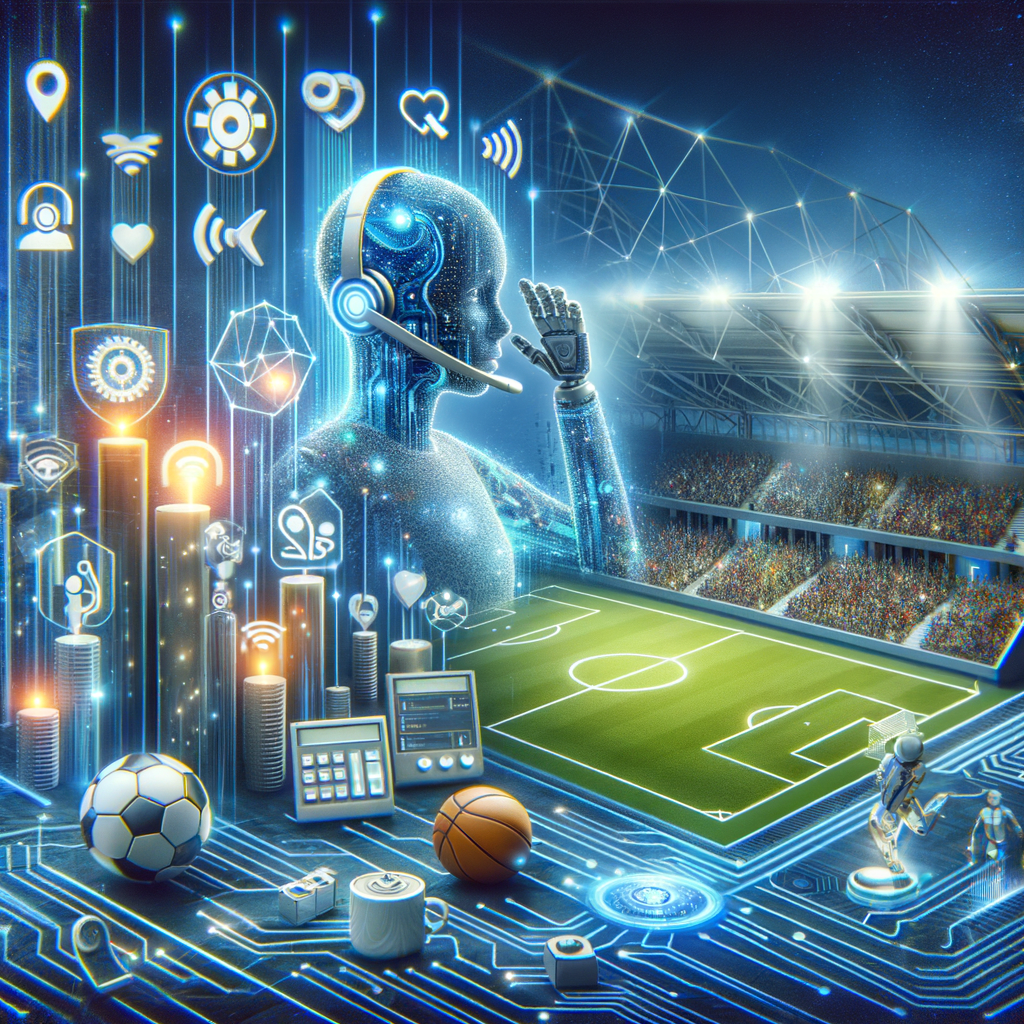AI Phone Agents Enhancing Customer Service for Sports Clubs
AI Phone Agents Enhancing Customer Service for Sports Clubs

Customer Service Centers – Revolutionizing Customer Service in Sports Clubs with AI Phone Agents
Introduction
Ever been left on hold for what feels like an eternity while trying to get information from your local sports club? We’ve all been there. But what if I told you those days could soon be behind us? With advancements in artificial intelligence, customer service is poised for a revolution. Let’s delve into how AI phone agents can transform customer service in sports clubs.
The Evolution of Customer Service
The Traditional Model
Once upon a time, customer service meant a friendly face behind a desk or a cheerful voice on the other end of a phone line. It was personal, sure, but also limited by human constraints like working hours and, let’s face it, patience.
The Digital Shift
Then came the digital age. Suddenly, email support, live chat, and FAQs became the norm. While convenient, these methods often lack the personal touch, leaving members feeling like just another ticket in a support queue.
Why AI is a Game Changer
24/7 Availability
Imagine having a customer service agent available at any time of day or night. AI phone agents don’t need sleep, don’t take breaks, and are ready to assist whenever a member calls. This can significantly enhance the club’s service levels, leading to happier, more satisfied members.
Faster Response Times
No more being put on hold or waiting days for an email response. AI phone agents can process inquiries almost instantaneously, ensuring that members get the help they need right when they need it.
Consistent Quality of Service
Human representatives are amazing but can have off days. AI phone agents deliver consistent, high-quality service every single time, ensuring a uniform experience for all members.
Features of AI Phone Agents
Natural Language Processing (NLP)
With NLP, AI phone agents can understand and respond to member inquiries in natural, conversational language. No more robotic, pre-recorded messages that frustrate rather than help.
Personalized Interactions
AI systems can store and recall member data, making interactions more personalized. They can remind a member about their favorite class or upcoming events, making the experience feel tailored and unique.
Proactive Assistance
Instead of waiting for members to reach out, AI phone agents can proactively offer assistance—reminding members to renew their membership, informing them of new services, or just checking in to ensure they’re satisfied with the club’s offerings.
Integrating AI Phone Agents in Sports Clubs
Seamless Onboarding Process
Integrating AI phone agents into existing customer service frameworks doesn’t have to be a daunting task. With the right guidance, sports clubs can enjoy a seamless transition from human-only to a hybrid or full AI-powered service.
Training and Fine-Tuning
Just like human agents, AI systems require training. Feeding them data, teaching them the ins and outs of the club’s operations, and fine-tuning them will ensure they deliver the best service possible.
Cost-Effective Solution
While the initial investment might seem steep, the long-term benefits, such as reduced staffing costs and improved member satisfaction, make AI phone agents a cost-effective solution for sports clubs.
Challenges and Considerations
Privacy Concerns
With AI systems handling sensitive member data, privacy concerns will inevitably arise. Sports clubs must prioritize data security and ensure that member information is stored safely.
Over-Reliance on Technology
There’s a risk of becoming too reliant on technology and losing the human touch altogether. Clubs should strive for a balance, ensuring that members who prefer human interaction still have that option.
Technical Glitches
No system is perfect. Technical issues might arise, leading to potential disruptions in service. It’s essential to have a backup plan and ensure that human agents are available to step in when needed.
The Future of Customer Service in Sports Clubs
Continuous Improvement
AI technology is continually evolving. As it becomes more advanced, the capabilities of AI phone agents will only expand, making customer service more efficient and personalized than ever before.
Smooth Human-AI Collaboration
The future lies in a hybrid approach where AI and humans work hand in hand. AI can handle routine inquiries, freeing human agents to tackle more complex issues, delivering the best of both worlds.
Conclusion
AI phone agents are not just a fad; they represent the future of customer service in sports clubs. By providing 24/7 availability, faster response times, and consistent service, they ensure a superior member experience. While there are challenges to overcome, the benefits far outweigh them. As AI technology continues to evolve, the potential for revolutionizing customer service in sports clubs is boundless. Prepare to say goodbye to long holds and unsatisfactory service, and welcome a new era of customer satisfaction.
FAQs
1. Are AI phone agents capable of understanding complex problems?
While AI phone agents are incredibly advanced, they may struggle with very complex or nuanced issues. However, they can efficiently handle a majority of routine inquiries and requests.
2. What happens if an AI phone agent makes a mistake?
If an AI phone agent encounters an issue it can’t resolve, it typically escalates the matter to a human agent, ensuring that the member’s problem is adequately addressed.
3. How secure is my data with AI phone agents?
Data security is a top priority for AI developers and sports clubs alike. Measures are in place to ensure that all member data is handled with the utmost privacy and security.
4. Will human agents still be available in sports clubs utilizing AI?
Absolutely. The goal is to enhance, not replace, human interaction. Human agents will still be available to handle more complex queries and offer the personal touch when needed.
5. How long does it take to implement AI phone agents in a sports club?
Implementation time can vary depending on the size of the sports club and the complexity of its operations, but on average, the integration process can take a few weeks to a few months.

